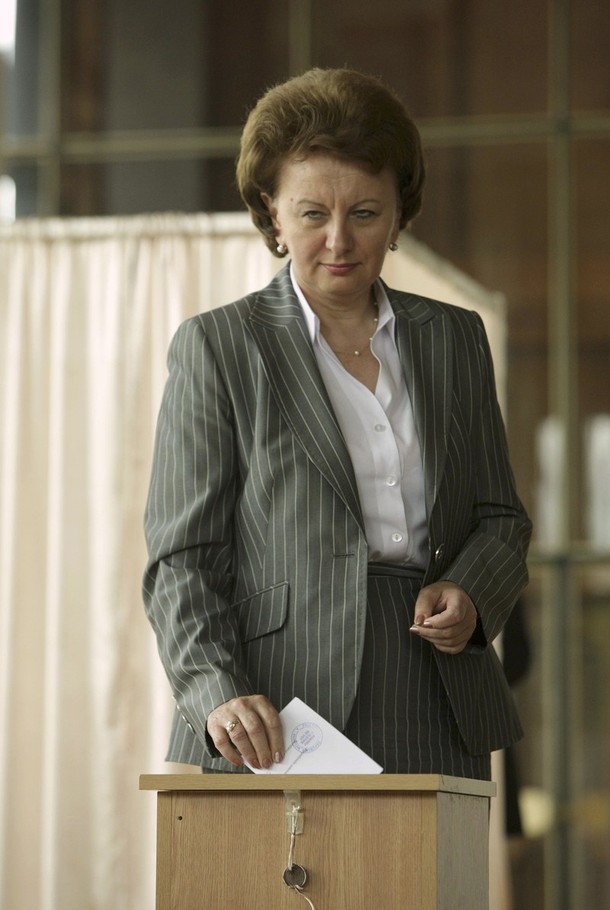
Moldova Enters Unstable Pre-Election Period
Publication: Eurasia Daily Monitor Volume: 6 Issue: 110
By:

As anticipated (EDM, May 26) Moldovan opposition parties have forced the holding of new general elections by boycotting the election of a head of state in the newly-elected parliament on June 3 (Moldpres, June 3-7). The opposition’s move has, in effect, nullified the parliamentary elections that were held on April 5 and were assessed on the whole positively by Western election observers. Another long, exhausting electoral campaign is now about to commence in Moldova.
The nominally Communist Party, first-place winner in four consecutive parliamentary elections (1998, 2001, 2005, April 2009), no longer looks likely to win a majority of seats in the repeat elections of 2009. Outgoing president Vladimir Voronin’s team and the party leadership seem unable to cope with the three-phased political crisis. In the first phase, the opposition rejected the validity and outcome of the April 5 elections, while youth mobs including the opposition’s sympathizers vandalized and set ablaze the presidential and parliament buildings. In the second phase, after the riots, the police cracked down indiscriminately and violently. In the third phase, the presidential team seems to oscillate on a daily basis between a policy of national reconciliation and one of fueling the political polarization.
The Communist Party won 60 parliamentary seats out of 101 in the April 5 elections. The opposition’s three nominally liberal parties shared the other 41 seats. Under Moldova’s constitution, the head of state is elected in parliament with a majority of three fifths, i.e. at least 61 votes. The Communists, one vote short, tried clumsily to attract one or several "golden" votes from the opposition in both rounds of the presidential election, May 21 and June 3. Prime Minister Zenaida Greceanai, a respected finance specialist, was entered as the party’s presidential candidate in both rounds of balloting and garnered the Communists’ 60 votes in each round (Moldpres, June 3, 4).
Failure to elect the head of state after two rounds of balloting triggers the dissolution of parliament and new elections from scratch. This procedure is now set in motion. A new parliament, head of state, and government might be in place by August or September, provided that a governing majority emerges from the elections. But the repeat elections might also produce another hung parliament, with continuing paralysis and possibly chaos in the deeply polarized body politic.
Moldova faces an institutional vacuum and constitutional crisis, compounded by the ongoing effects of the international economic crisis. Voronin has completed his second, final term as president. He was elected as chairman of the newly elected parliament, concurrently serving as acting head of state until June 7. His authority to continue as acting head of state is constitutionally in doubt; and his right to sit in parliament is also being challenged in the constitutional court on the grounds that he may not hold a remunerated post.
Meanwhile, the government needs to be confirmed by the parliament that was elected on April 5, prior to its dissolution. Voronin has nominated the outgoing government in its existing composition to continue serving until a new parliament confirms another government. Pending that, the existing government will function in a caretaker capacity, without authority to enact major policy initiatives or appointments. Without a sitting parliament, Moldova will be unable to enact anti-crisis legislation or credibly negotiate with international institutions for financial assistance. Following the failure of the presidential election, the IMF has announced that any new lending to Moldova must await the election of a new parliament and confirmation of a new government (Moldpres, June 8).
The Communist Party had found itself in a supremely advantageous position following the April 5 elections and April 7 riots. It had again won the elections, received a generally clean bill of health from Western election observers, and was the target of shocking vandalism by mobs including opposition sympathizers. For their part the three opposition parties demonstratively rejected the Western observers’ assessment of the elections, and equally disputed the Moldovan constitutional court’s validation of the elections, and ignored E.U. advice to work within the newly elected parliament -undermining Moldova’s fragile institutions.
Instead of using this situation to resolve the crisis, Voronin’s team and the party leadership have wasted those advantages. They authorized the unnecessary, violent and indiscriminate police crackdown and are not condemning it after the fact; they are matching the opposition’s quotidian hate speech, instead of demonstrating statesmanship; and Voronin insists on remaining the country’s number one leader as chairman of parliament for another electoral cycle (even by transferring some presidential powers to himself in parliament), instead of making room for more appealing and consensus-building figures at the top.
In the repeat elections, both sides are set to use strategies of polarization and intolerance, along with the rhetoric of mutual hatred. These elections threaten to destabilize Moldova in ways that were previously unthinkable, as was the April 7 destruction of the state buildings.




